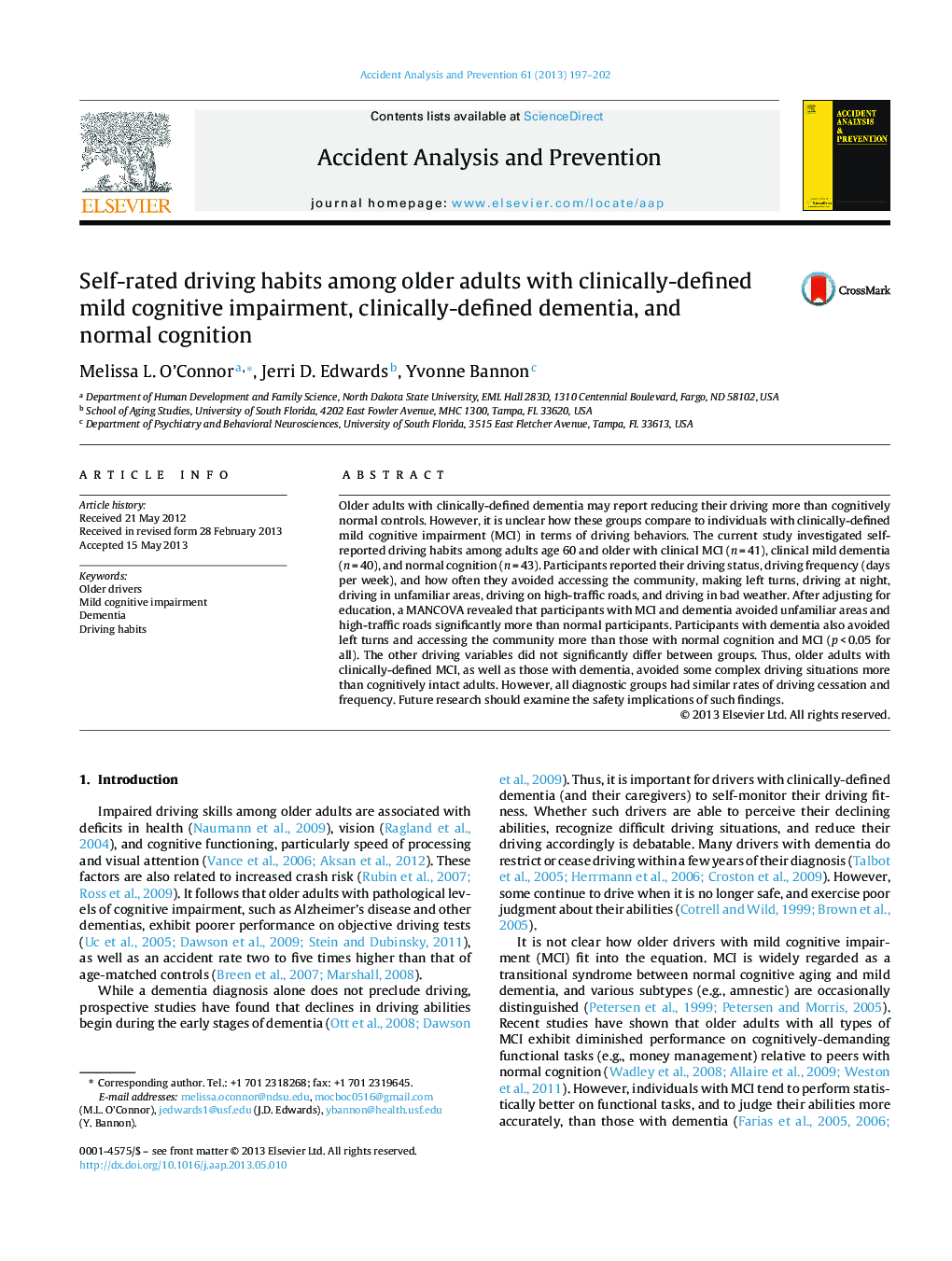| Article ID | Journal | Published Year | Pages | File Type |
|---|---|---|---|---|
| 572471 | Accident Analysis & Prevention | 2013 | 6 Pages |
•Examined self-reported driving in older adults with clinical cognitive impairment.•Participants had mild cognitive impairment (MCI), dementia, or normal cognition.•All participants had similar driving status and frequency.•MCI and dementia avoided unfamiliar and high-traffic roads more than normal group.•Dementia group avoided left turns and the community more than normal and MCI groups.
Older adults with clinically-defined dementia may report reducing their driving more than cognitively normal controls. However, it is unclear how these groups compare to individuals with clinically-defined mild cognitive impairment (MCI) in terms of driving behaviors. The current study investigated self-reported driving habits among adults age 60 and older with clinical MCI (n = 41), clinical mild dementia (n = 40), and normal cognition (n = 43). Participants reported their driving status, driving frequency (days per week), and how often they avoided accessing the community, making left turns, driving at night, driving in unfamiliar areas, driving on high-traffic roads, and driving in bad weather. After adjusting for education, a MANCOVA revealed that participants with MCI and dementia avoided unfamiliar areas and high-traffic roads significantly more than normal participants. Participants with dementia also avoided left turns and accessing the community more than those with normal cognition and MCI (p < 0.05 for all). The other driving variables did not significantly differ between groups. Thus, older adults with clinically-defined MCI, as well as those with dementia, avoided some complex driving situations more than cognitively intact adults. However, all diagnostic groups had similar rates of driving cessation and frequency. Future research should examine the safety implications of such findings.
